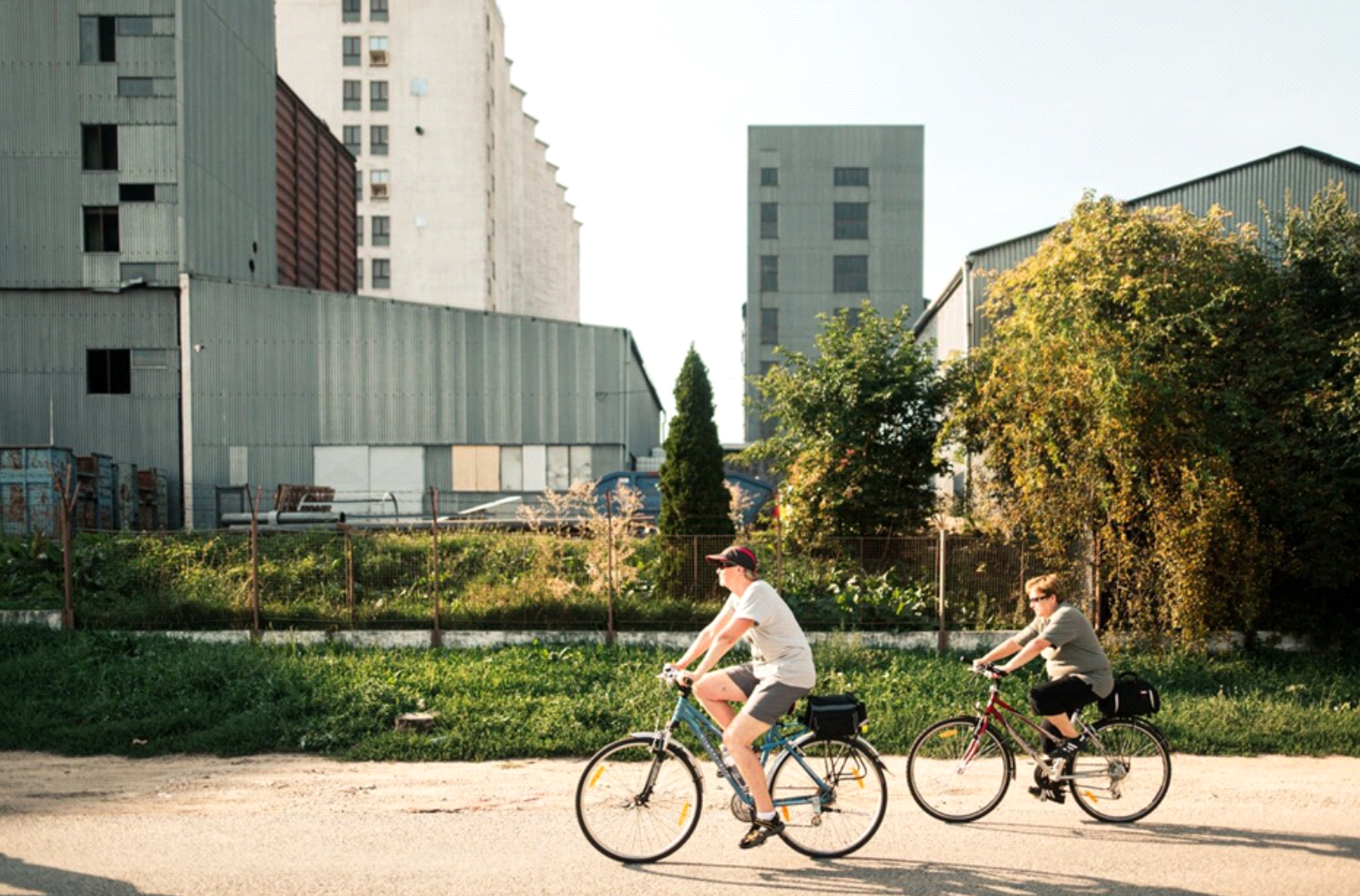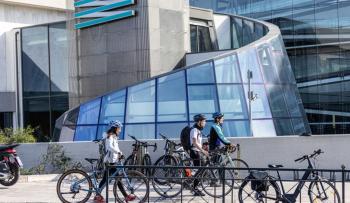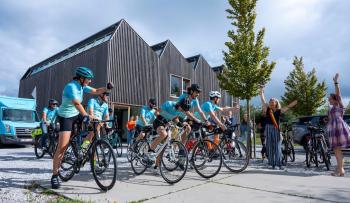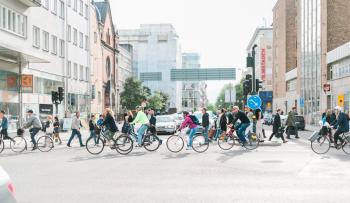
Trnava Self-Governing Region – Slovakia’s cycling champion
ECF welcomes the Trnava Self-Governing Region to Cities & Regions for Cyclists, a network that brings together local and regional administrations, actively working to promote the bicycle as a mode of transport and leisure, and the exchange of knowledge on cycling policies.
The Trnava Self-Governing Region or Trnava Region, lies almost in the geographical centre of Europe and borders three countries - the Czech Republic, Austria, and Hungary. It is divided into seven districts and is home to just over 560,000 residents. The role of the region with regards to cycling development, is not only to connect the districts, but also cities, municipalities, with high-performance connections on the space between individual settlements. The region supports local governments in the process of using available resources to build meaningful connections and develops infrastructure in places where it is more efficient than local government.
With a historically high bicycle use, especially in the south, Trnava Region has been awarded a National European Mobility Week Award for two years in a row; 2022 and 2023, for Active Self-Governing Region. A Sustainable Regional Mobility Plan (SRMP) was adopted in 2020 and sets a goal of 12% modal share for cycling by 2050. The SRMP outlines several measures including segregated cycling infrastructure between municipalities, integration of cycling with public transport, bike share, bicycling parking, and emphasis on e-bikes usage. The Trnava Region has a budget of 2,5 million Euro for cycling infrastructure investments, and an additional 28,000 Euro for soft measures implemented by the office of the Regional Cycling Officer, Silvia Szokolová for 2024. A new Regional Cycling Strategy is currently being developed in collaboration with ECF members in Slovakia, Cyklokoalícia and Slovenský Cykloklub, and is expected to be adopted in late 2024.
In addition to investments in regional cycling infrastructure, the Trnava Region supports municipalities in its territory. One of the most significant achievements has been the highly successful educational programme for representatives of municipalities, public administration employees, including municipalities in the field of transport and project management. The Autumn School of Cycling 2022, and Spring School of Cycling 2023, were co-organised by the Trnava Region, Cyklokoalícia and the Ministry of Transport, with the aim was to increase awareness of sustainable mobility, as well as to deepen cooperation between the region, cities, and municipalities, thereby improving the readiness of municipalities to draw on European resources and funds from the Recovery Plan. The programmes brought together more than 50 participants in each edition, to learn from experts in the field of active and sustainable mobility, from basic principles of infrastructure design to communications and data, as well as public space planning, safe school streets and cooperation with the non-profit sector.

The Trnava Region aims to implement evidence-based and data-driven policies. To this end, important studies have been conducted in recent years such as:
- The Study on the Development of Cycling Transport in Trnava Self-governing Region (in cooperation with Cyklokoalícia, 2022) – the study proposes financially effective solutions with a social return on investment in the development of bicycle transport, thereby emphasizing principles of value-for-money. According to the results of the analysis, the highest value for money is in the development of cycling in the inner cities of municipalities and the surroundings of the cities in the region.
- Bike to Work – Mobility Behaviour of the Campaign Participants in Trnava Self-Governing Region (2023) – a first map of outputs derived from the data of the regional Bike to Work campaign, presents the spatial behaviour of residents during their daily commute, including preferred routes of cyclists and pedestrians, as well as intersections used most often. The aim of the study is to provide all municipalities with relevant information and data on starting and ending points of journeys, average length of routes etc. for informed decision-making.
- Crash Test: Bike versus car - The Trnava Region was the first region in Slovakia to simulate a collision between a cyclist and a motor vehicle. The crash test pointed out the direct proportionality between driving speed and the risk of killing a cyclist, as well as the emphasis on road safety. The activity was implemented as a part of the European Mobility Week, in which the Trnava Region participates every year.
Silvia Prokopová, the Regional Cycling Officer, said, "The research conclusions speak for themselves - the way to the safety of all road users leads through the adjustment of the maximum permitted speed in urban areas. In addition to reducing noise and emissions, this will make it possible to increase the share of micromobility and pedestrian mobility, which will improve the quality of life of residents and build a cohesive and ecologically responsible society."
The Trnava Self-Governing Region joins a network of cities and regions committed to promoting cycling as a mode of transport and leisure, collectively representing over 50 million citizens across Europe and beyond.
For more information on ECF’s CRC network and how to join, visit our Cities & Regions for Cyclists page.
For more information on the Trnava Self-Governing Region, click here.
Regions:
Network/Project Involved:
Contact the author
Recent news!
Contact Us
Avenue des Arts, 7-8
Postal address: Rue de la Charité, 22
1210 Brussels, Belgium









